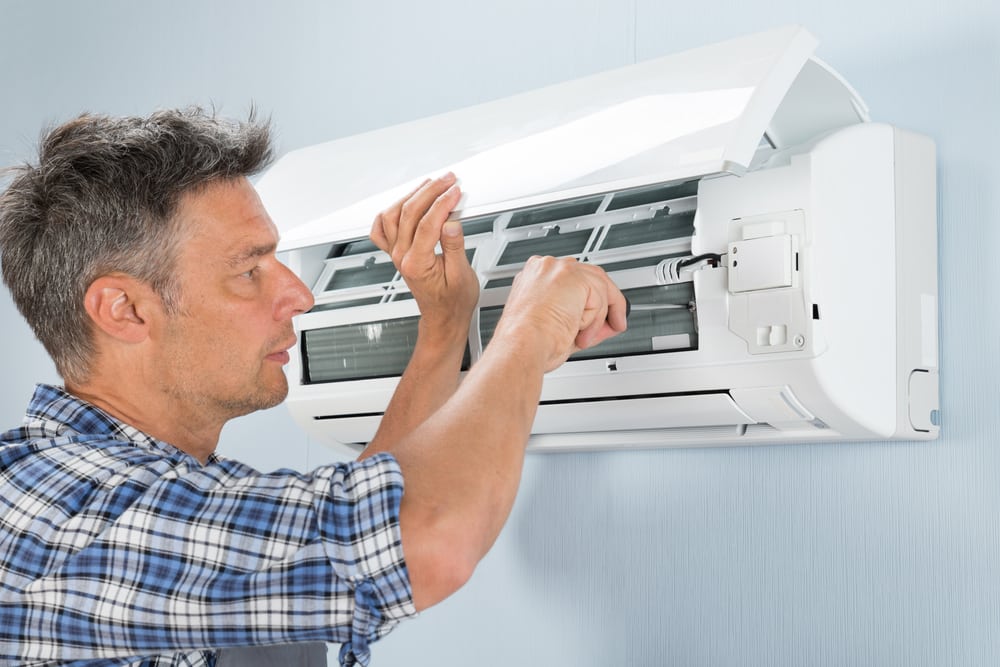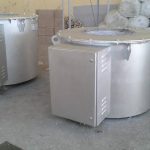
Air conditioners are designed to provide calm, comfortable indoor environments by removing heat and humidity. However, if your AC starts leaking water, it could be a sign of an issue that requires immediate attention. Water leakage from an air conditioner is not only a nuisance but can also lead to water damage, mold growth, and reduced efficiency of the unit. Understanding why your AC leaks water and how to prevent it can save you time, money, and inconvenience.
Common Reasons Your AC Leaks Water
Water leaks in air conditioners can be caused by a number of things. If you notice aircon dripping water, it could be due to a clogged drain line, a frozen evaporator coil, or improper installation, all of which require timely maintenance to prevent further issues. Below are some of the most common causes:
1. Clogged Drain Line
Clogged condensate drain lines are one of the main reasons why air conditioners leak water. Over time, dust, dirt, and mould can build up in the drain pipe, causing a blockage. When this happens, the water has nowhere to go and starts leaking from the unit. Regular maintenance and sporadic cleaning can usually clear a clogged drain line.
2. Dirty Or Frozen Evaporator Coil
The evaporator coil inside your AC absorbs heat and humidity from the air. If the coil becomes dirty or freezes, condensation can accumulate and overflow, leading to leaks. When airflow is limited because of a dirty air filter or low refrigerant levels, coils often freeze. Ensuring proper airflow and keeping the evaporator coil clean will help prevent this issue.
3. Cracked Or Rusted Drain Pan
The drain pan collects condensation from the evaporator coil before directing it toward the drain line. If the pan is old, cracked, or rusted, water can leak from the unit before it reaches the drain. Inspecting the drain pan periodically and replacing it when necessary can help prevent leaks.
4. Improper Ac Installation
Water may not drain properly from an air conditioner if it is not installed correctly. This is particularly common with window units, which should be slightly tilted to allow water to flow toward the drain. If the unit is not level or tilted incorrectly, condensation can accumulate and start dripping inside.
5. Low Refrigerant Levels
Low refrigerant levels can cause the pressure inside your AC system to drop, leading to the freezing of the evaporator coil. When the ice melts, excess water can overflow, causing leaks. If your AC isn’t cooling effectively and is leaking water, a refrigerant check by a professional technician is recommended.
6. High Humidity Levels
During humid weather, your AC works harder to remove moisture from the air. Excess condensation can sometimes overwhelm the drain system, leading to leaks. In high-humidity environments, using a dehumidifier alongside your AC can help prevent excess moisture buildup.
How To Prevent AC Water Leaks?
Here are some effective ways to prevent this issue:
1. Regularly Clean The Air Filter Or Replace It.
Excessive condensation and a frozen evaporator coil can result from restricted airflow caused by a clogged air filter. To guarantee adequate airflow and effective operation, check and replace your air filter every one to three months.
2. Inspect And Clean The Drain Line
Blockages can be avoided by routinely inspecting and cleaning the condensate drain line. To clear the drain line and get rid of any debris or mould growth, mix vinegar and water. If the line is clogged, a wet/dry vacuum can help clear the obstruction.
3. Check The Drain Pan For Damage
Check for rust, cracks, or other damage on the drain pan. If you notice leaks from a worn-out drain pan, replacing it can prevent water from escaping onto your floors.
4. Ensure Proper Installation
Make sure your air conditioner is installed correctly, with proper levelling and drainage. If you have a window unit, ensure it has a slight tilt to direct water toward the drain hole. For central AC systems, check that the drainage system is functioning properly.
5. Monitor Refrigerant Levels
You may have low refrigerant levels if your air conditioner is not cooling effectively or if you see ice accumulating on the evaporator coil. To avoid water leaks and coil freezing, have a qualified technician check the refrigerant and refill it as needed.
Final Thoughts
Water leakage from an air conditioner is a common issue, but it’s usually preventable with proper maintenance. You can prevent needless repairs and maintain the best possible condition for your air conditioner by being aware of the reasons behind leaks and taking preventative action. If your AC continues to leak despite troubleshooting, seeking professional assistance is the best course of action.








